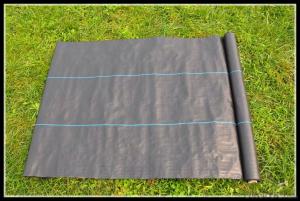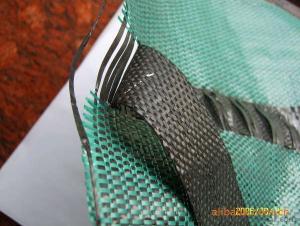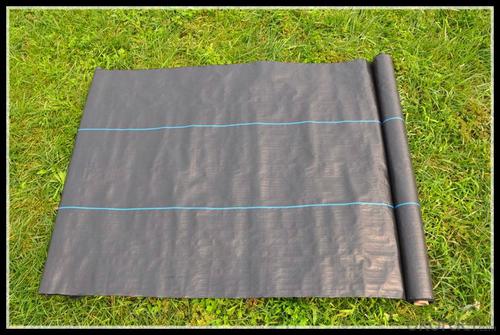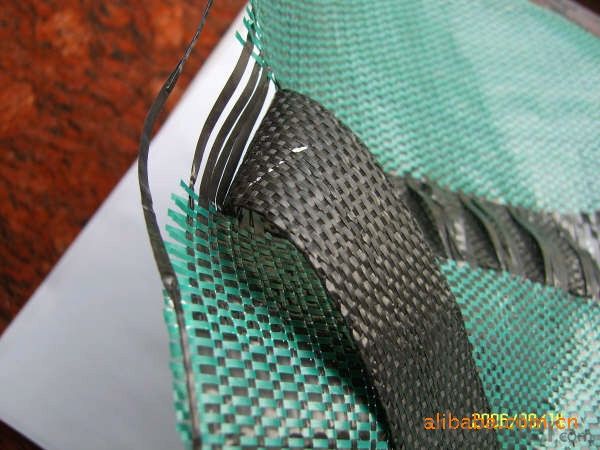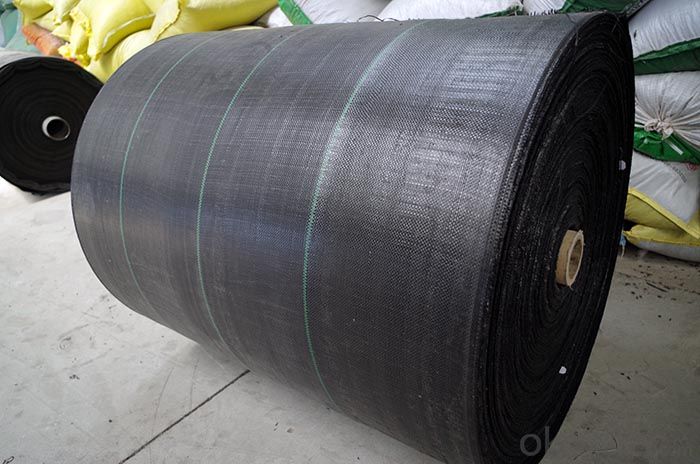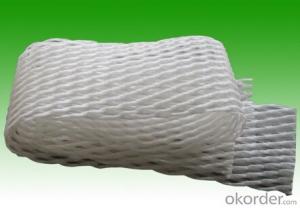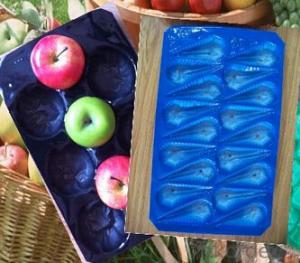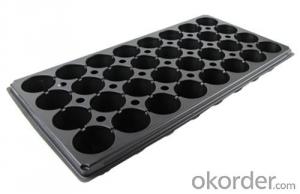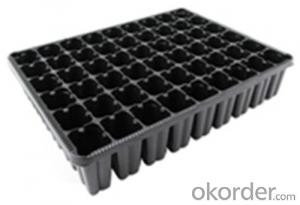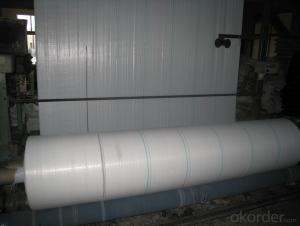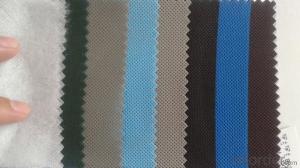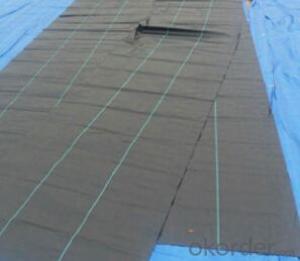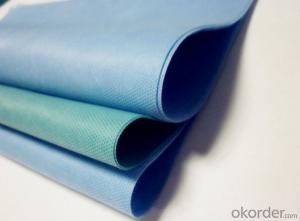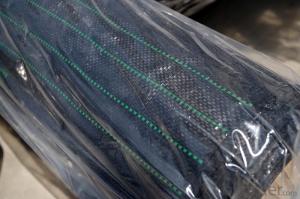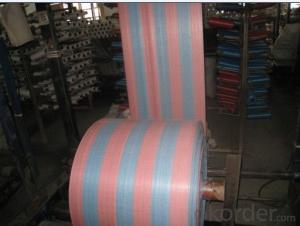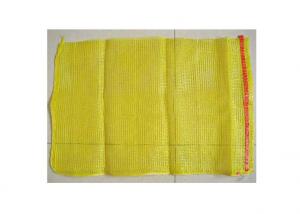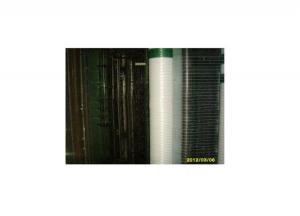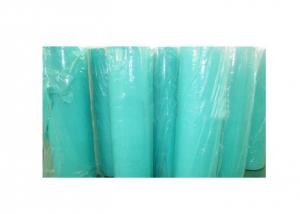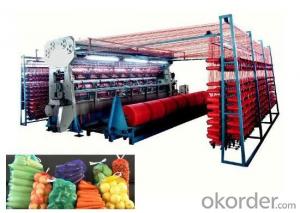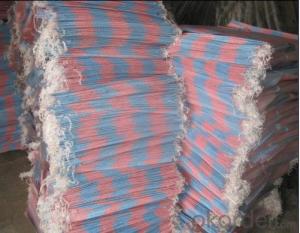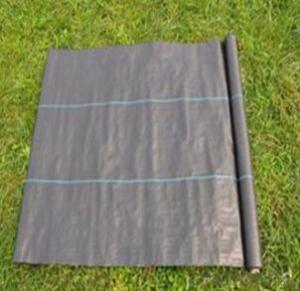Woven Fabric for Agriculture 100% PP material
- Loading Port:
- Shanghai
- Payment Terms:
- TT OR LC
- Min Order Qty:
- 2000 m²
- Supply Capability:
- 100000 m²/month
OKorder Service Pledge
OKorder Financial Service
You Might Also Like
Woven Fabric for Agriculture 100% PP material
Weed Control fabric not only prevents weeds, it encourage root growing by keep soil moist and cool. Made of UVtreated polypropylene,
this costeffective weed control fabric feteures allow the free flow of air,water and nutrients to the soil while blocking sunlight and weeds.
This chemical free method for stopping weed grow for years.
Weed Control Fabric helps minimize your yard work since it stops weeds from growing. You do not have to use herbicides, which can damage your lawn andcause harm tochildrenand animals.Made of
Polypropylenematerial , weed block is easily cut to fit inyour garden or hard landscape areas.
Specification:
Material | Woven PP/PE Fabric |
Width | 0.5m - 4.4m |
Length | 50m - 2500m |
Color | Black/Grass Green/Japser/Black-Green |
Weave | 9*9 to 13*13 |
Weight | 60gsm-180gsm |
U.V. | With or Without U.V. |
Life Span | 3~5 years with U.V. treated |
Feature | Non-Toxic |
Style | Plain |
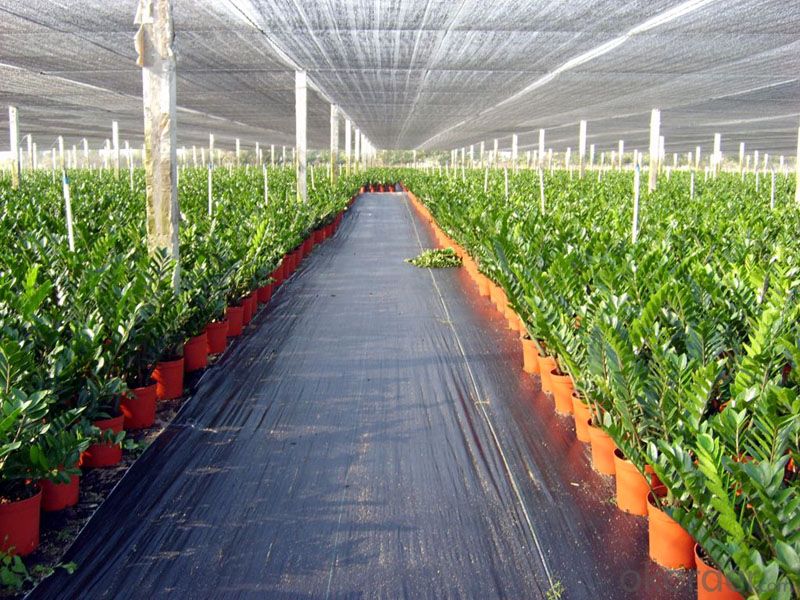
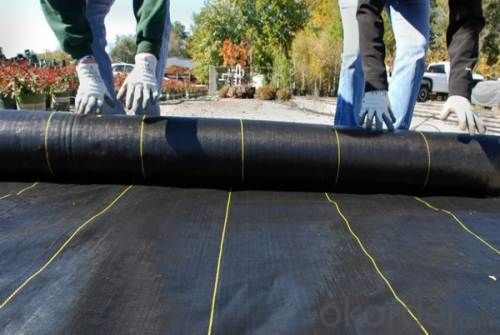
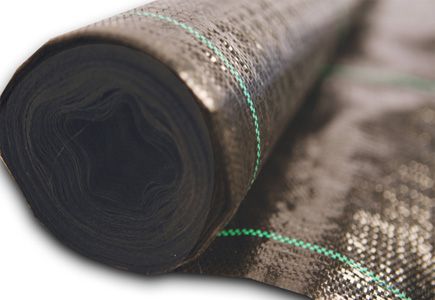
FAQ:
1. Where is your factory located in?
Factory is located in Jiangsu Province, Neat to Shanghai Port.
2. How long have you been in this product production?
We have been in the business more than 10 years,
3. Can we have some sample or trial order before bunk order?
Yes, we can provide you some free samples, and for trial order, we will offer you the lowest price.
- Q: What are the different colors available for plastic mulch films?
- The different colors available for plastic mulch films include black, silver, white, red, blue, and green.
- Q: How do agricultural plastic products help with crop transport?
- Agricultural plastic products, such as crates, bins, and pallets, play a crucial role in crop transport. These products provide a safe and efficient way to store and transport harvested crops from the field to the market. They help protect the crops from damage during handling and transportation, ensuring their quality and freshness. Additionally, agricultural plastic products are lightweight, durable, and easily stackable, allowing for more efficient loading and unloading processes. Overall, these products streamline crop transport, reduce losses, and contribute to the smooth and timely delivery of agricultural produce.
- Q: for example,plastic bags,plastic bottles etc.....
- Most plastic bags are produced using oil. Oil drilling is harmful to the environment and our addiction to oil is making our nation less secure, while damaging our economy. (Though of course there are other problems with security and economy.) In addition, plastic bags that are not recycled will eventually end up in a landfill or in the ocean. Plastic does not even begin to biodegrade for hundreds of years. This allows it plenty of time to wreak havoc in ecosystems. For instance, sea turtles mistake plastic bags for jellyfish, and eat them. The plastic blocks their digestive tracts, causing painful deaths. Have you ever heard of the Pacific Garbage Patch? It's a plastic continent, at least twice the size of Texas, floating in the Pacific. It's composed of waste, most of which originated on land. Recycling plastic bags is essential, but even this uses considerable energy, which pollutes the air. Banning plastic bags would alleviate these problems. However, plastic must be replaced with reusable bags, not necessarily paper. The problem is, people are accustomed to cheap, convenient lifestyles, and many are unwilling to switch to reusable bags. But I use cloth bags at Target and Winn-Dixie, and I find them to be much more convenient than plastic or paper, because they are sturdier and hold more stuff. So the only real disadvantage that I can think of is that the plastic bag industry would suffer, which is not good is this economic climate. Others might disagree, but IMHO the environment is more important than big business. A final note: As Plastic bags do not account for all of the plastic waste we produce. Most items in stores are over-packaged and use excessive plastic, because the packaging is used for advertisement, not just to protect the product. In order to solve the problems caused by plastic waste, we must recycle, decrease and/or eliminate all plastic, not just bags.
- Q: Are nursery trays suitable for starting vegetable transplants?
- Yes, nursery trays are suitable for starting vegetable transplants. They provide a controlled environment for seedlings to develop strong root systems before being transplanted into the garden. The trays offer proper drainage and allow for easy transplanting, making them a practical choice for starting vegetable transplants.
- Q: Can nursery trays be stacked?
- Yes, nursery trays can be stacked on top of each other for easy storage and transportation.
- Q: Can ground cover be used in both residential and commercial landscapes?
- Yes, ground cover can be used in both residential and commercial landscapes. Ground cover plants are versatile and can provide numerous benefits such as erosion control, weed suppression, and aesthetic appeal. Whether it's a residential garden or a commercial property, ground cover can be used to enhance the landscape and provide a low-maintenance and sustainable solution.
- Q: Explain how the use of agricultural plastic products contributes to increased crop yields.
- <p>Farmers use agricultural plastic products to increase crop yields by employing various techniques such as mulching, greenhouse cultivation, and row covers. Mulching with plastic film helps retain soil moisture, suppress weeds, and maintain soil temperature, all of which contribute to a more favorable environment for plant growth. Greenhouses made from plastic allow for year-round growing, protect crops from harsh weather, and enable precise control over temperature and humidity, leading to higher yields. Plasticulture, the use of plastic in the cultivation process, also aids in disease and pest management, further increasing the efficiency and productivity of farming operations.</p>
- Q: my cat always licks plastic bags/plastic folders and sometimes tries to chew them. its funny but im kind of worried whta will happen if she ever digests any plastic
- Don't ever let her ingest shopping bags, we had to get my dogs stomach opened and it was awful. Idk cats have weird little kinks. My cat loves my little sisters barbies, but only when they're naked. My cats a perv
- Q: Do nursery trays come with a bottom tray for water drainage?
- Yes, nursery trays typically come with a bottom tray for water drainage.
- Q: What are the upcoming trends in the creation and use of sustainable agricultural plastics?
- <p>Yes, there are several future trends in the development of sustainable agricultural plastics. These include the increased use of biodegradable plastics made from renewable resources like corn and sugarcane, which can break down naturally in soil. There is also a growing focus on developing plastics with a lower carbon footprint and longer lifespan to reduce waste. Additionally, there's a trend towards improving recycling technologies to better repurpose agricultural plastics, and the exploration of bioplastic alternatives that can perform as effectively as traditional plastics but with less environmental impact. Innovations in nanotechnology are also expected to play a role in creating more efficient and sustainable agricultural plastics.</p>
Send your message to us
Woven Fabric for Agriculture 100% PP material
- Loading Port:
- Shanghai
- Payment Terms:
- TT OR LC
- Min Order Qty:
- 2000 m²
- Supply Capability:
- 100000 m²/month
OKorder Service Pledge
OKorder Financial Service
Similar products
Hot products
Hot Searches
Related keywords
